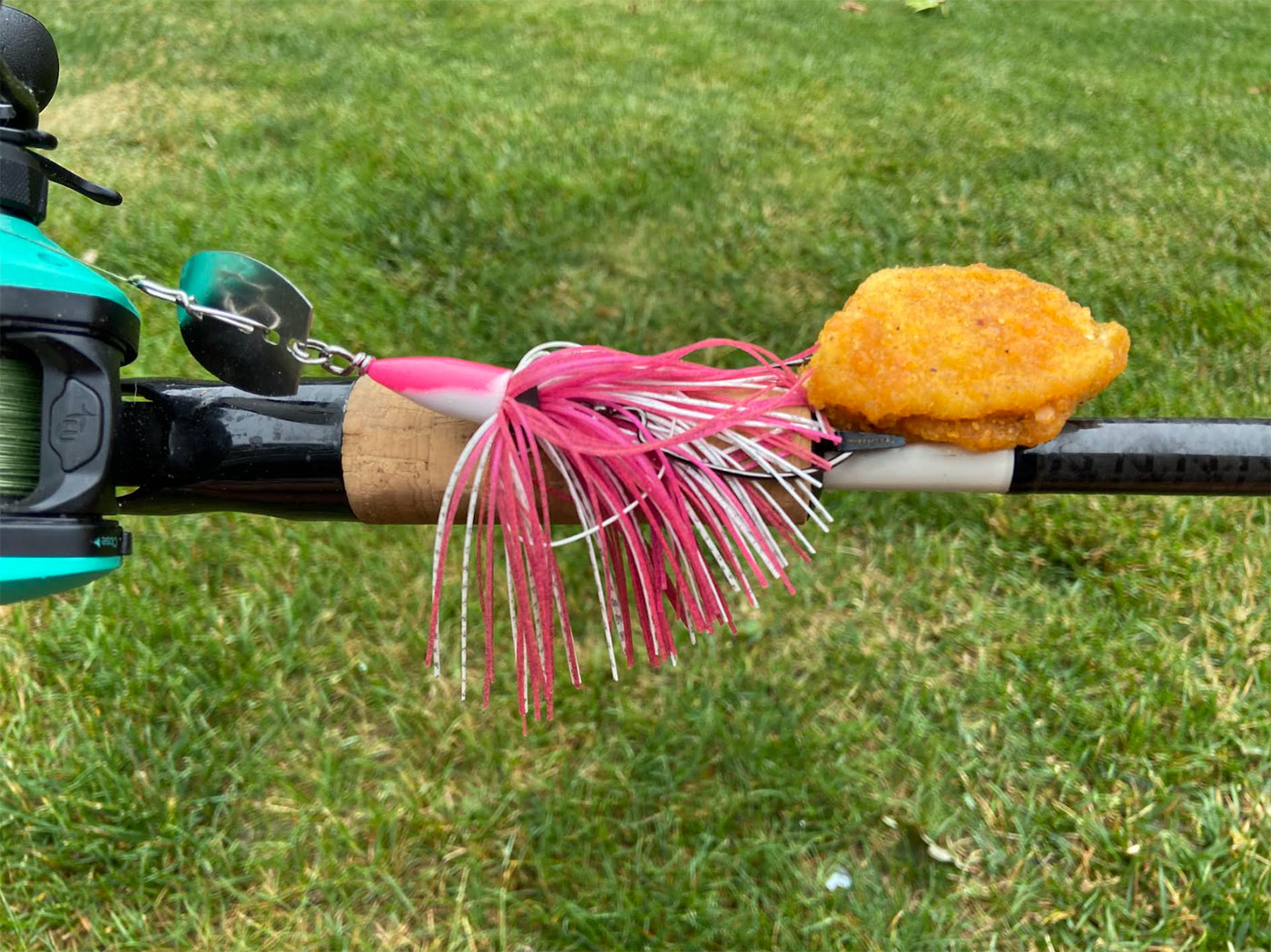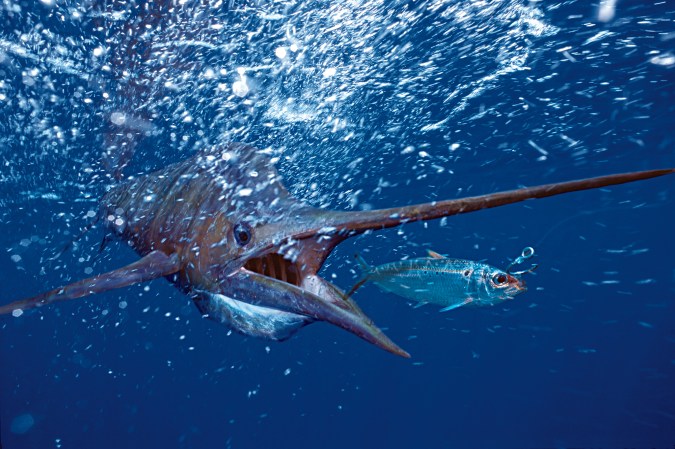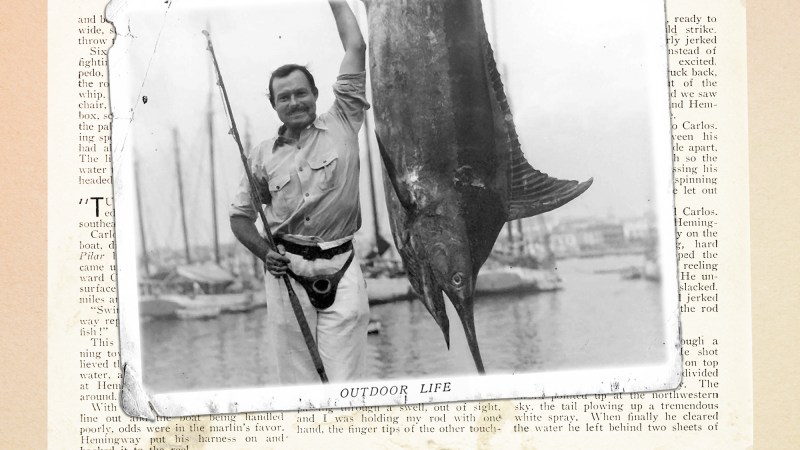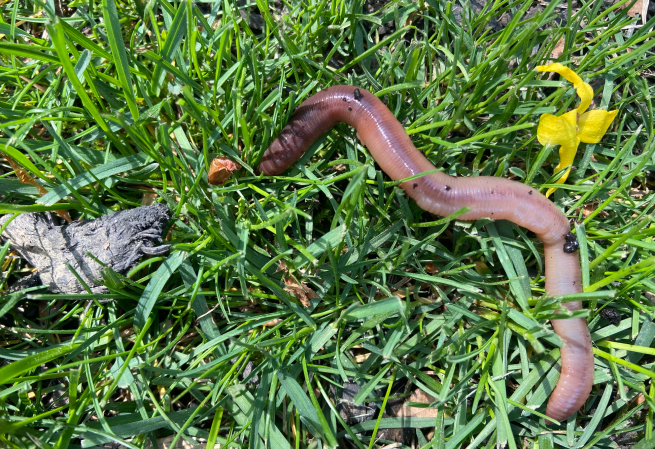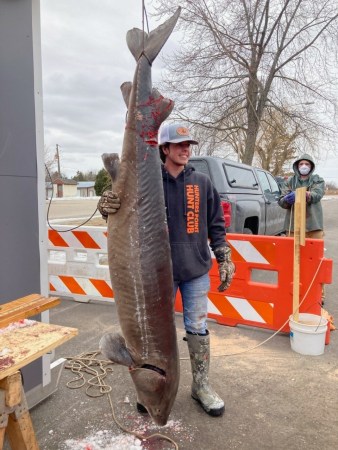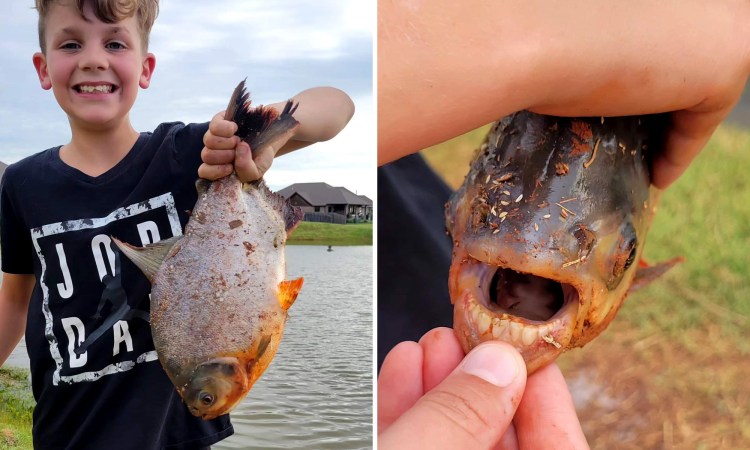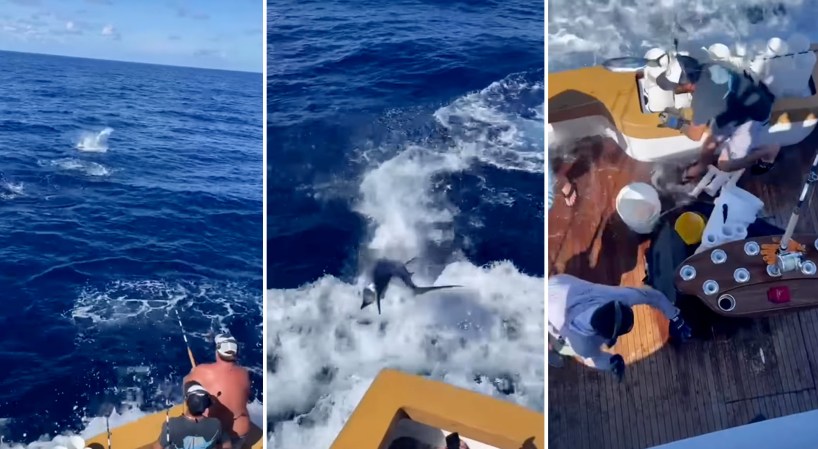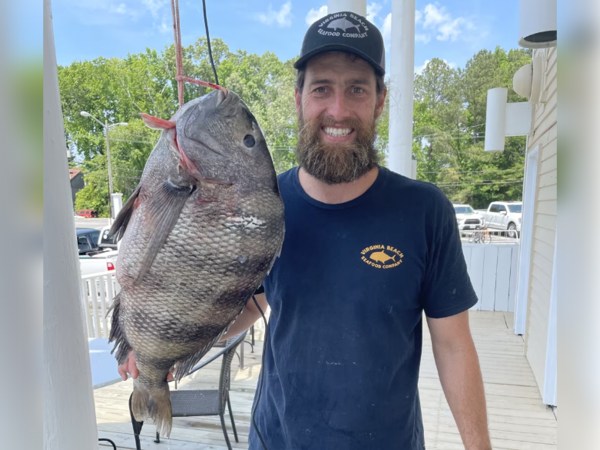We may earn revenue from the products available on this page and participate in affiliate programs. Learn More ›
Nine-year-old Charlotte Pinon of Wyoming, Ohio, had herself one heck of a Memorial Day weekend. According to this report on 25newsnow.com, she was fishing with her dad at a small pond when she decided to stick a McDonald’s chicken nugget on her hook. Next thing she knew she was wrangling a 5-pound bass to the bank. Charlotte claims to have had success in the past using gummy worms and crackers as bait. The next time she and her dad head out, she says she’s going to give Doritos a shot.
This is a very fun and cute story, but serious anglers put a lot of time and effort into catching a five pounder—and many have not cracked the 5-pound mark yet. Charlotte’s McNugget victory begs a question: Do we give fish too much credit for being smart and discerning? Having had this conversation with countless anglers I respect over the years, my opinion may help you look at fish differently.
@shankbaitco Charlotte catches monster bass on mcdonald’s chicken nugget. Memorial Day weekend 2023. #mcdonalds #kids #kidsfishing #monsterfishkeepers #shimanofishing #topwaterfishing #topwaterexplosions #wheelchair #wheelchairfishing #family #kids #kidsfishing #tiktok #tiktokindia ♬ original sound – shankbaitco
Smart vs. Selective Fish
To cut right to the chase, yes, I believe anglers often give fish too much credit in the brain power department. I also fully understand why we do this. If you believe that the rising trout you’re targeting with a dry fly, or the bonefish cruising that flat, or the largemouth tucked up under that dock is smarter than the average fish, you get to give yourself a bigger pat on the back if you get it pinned on a hook. To achieve these feats, we’ll pine over lure and fly choices, triple check our knots, and wait for the perfect moment to make a cast. We’ll also spend thousands of dollars on baits, lures, and electronics. We’ll consume gobs of media aimed at making us better fishermen. For many devout bass anglers, hitting the lake is the equivalent of going to a high-stakes competition. It’s a serious pursuit that requires focus and smarts. Meanwhile, Charlotte Pinon caught the fish you’re after on a piece of breaded chicken. How’s that possible if largemouth are supposed to be such cunning adversaries?
“Smart” is often confused with “selective” and “wary,” both of which are products of circumstance. To use permit as an example, catching a big one on a fly rod on a skinny flat is a huge achievement and a goal anglers spend thousands of dollars to reach. But in that shallow environment, they are more exposed and, therefore, more cognizant of unnatural sounds. They are actively rooting around for shrimp and crabs, their senses on high alert, making it more likely that they’ll sniff your non-organic fly and refuse to eat it. If, on the other hand, you find permit on a reef or wreck in 30 feet of water and drop a live crab, you can catch dozens a day. I know because I’ve done it. Is it as sexy as a flats fish? No, but it proves the point that permit are only “smart” in one scenario. This ebbing and flowing of “smarts” can be applied to almost every species of fish.
It’s All About Conditions
Within every fishery there are conditions that make even the “smartest” fish easier to catch. If you watch for these conditions throughout the season, you’ll find that fish you thought were smart become kind of dumb. In no other fishery is this more evident than with trout. In midsummer when the water is lower, clearer, and there’s a bug hatch occurring, you might only get to make one presentation to a rising 23-inch brown. If you goof, it’ll spook or go down and stop surfacing. Or the fish can be so focused on a particular bug forage that, try as you might to make it eat something else, it won’t. However, in April when the water’s higher and a little stained, that fish and many others in the same size class might bolt out and attack any lure or fly that wriggles past its face with reckless abandon.
Even notoriously fickle fish like muskies will go through periods where they lose all that trademark snobbery and take shots at any lure or bait that gets close. I was once on a muskie trip in Pennsylvania when a buddy and I hooked and landed five while casting down just 100 yards of the lake bank. It’s rare to be present for such a feeding window—and I’ve never experienced it again while muskie fishing. But something as simple as an approaching storm that drops the barometric pressure can trigger a natural urge to feed. Such was the case with Charlotte’s fish, I’d imagine. Are bass so dumb that they’ll eat a McNugget all the time? Absolutely not. Five hours earlier or the next day, and that fish may not have considered it.
Read Next: Why Black Lures Catch Fish
I’d guess this all worked out for Charlotte because the pond she was fishing likely receives limited pressure and she threw that chicken nugget during a window when this opportunistic bass was in feeding mode. There is another lesson here, however, that can help you decide what to tie on the end of your line.
Overthinking Bait Selection
Anglers put a lot of effort into lure and fly selection. Do I use the Sexy Shad pattern or the fire tiger? Black streamer with heavy flash or green with no flash? I’m not going to suggest that there are no scenarios where these minute details matter, but most of the time they don’t mean as much as we’d like to believe, especially when targeting predatory species.
Anglers love the idea that we fooled a fish with our ability to select the perfect offering, but all we really did most of the time was put a sufficient offering in the zone of a fish that was already hungry and looking to kill. In that moment in time, if the fish could see the lure or fly, it matched the size of a natural forage that fish routinely eats, and it had good swimming, wiggling, or darting action, it was likely going to get hammered. In the nanosecond it takes a predator to decide to commit, pattern or the material or the fact the that lure has red eyes instead of yellow doesn’t matter. This is especially true in moving water where fish know that if they pass on the meal, the current will carry it away. Here again, on those magical days when every fish just seems hellbent on hitting your lure, it’s likely less about what you’re casting and more about the conditions or windows that make those “smart” fish a little dumber.
Fishing success revolves around timing more than anything else. Sometimes you just get lucky and cast out a chicken nugget when a bass that might snub every lure under different conditions wants an easy, crispy meal. But if you pay attention to the conditions and strive to fish during feeding windows, you won’t need to worry about what you tie on, because you’ll be casting to “dumb” fish.

